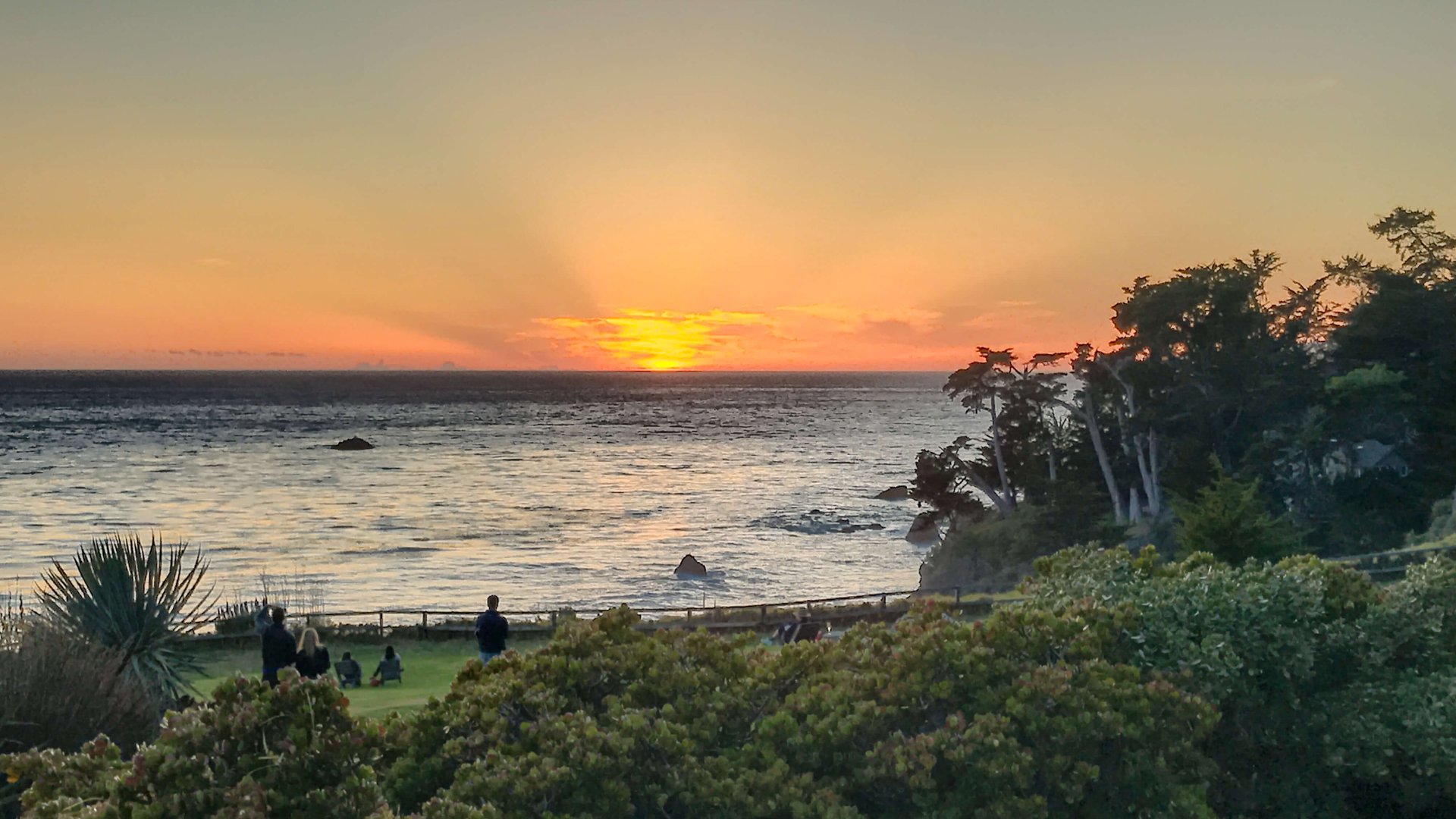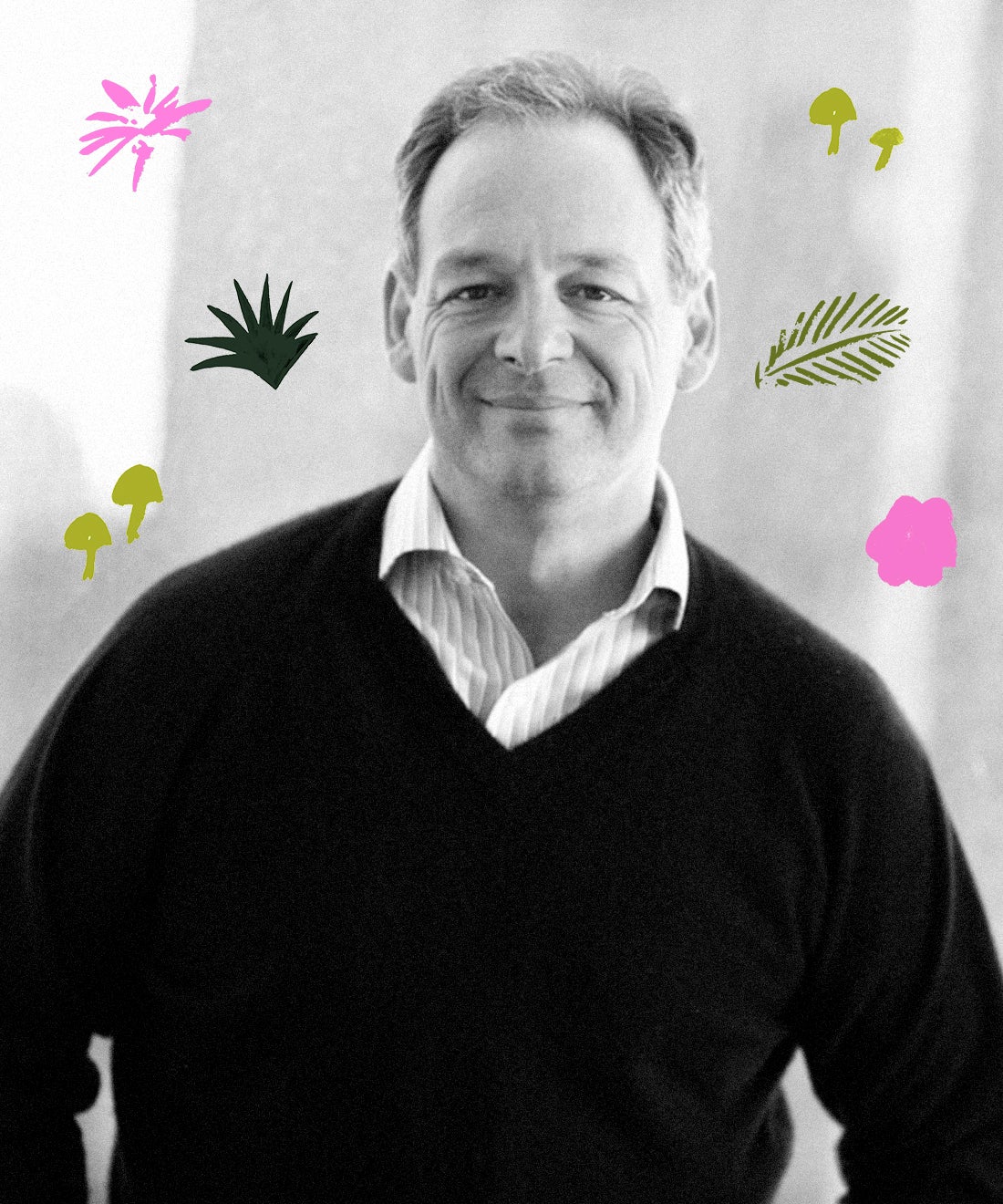How the Esalen Institute’s CEO runs a retreat—and a workplace—to maximize human potential
The Esalen Institute was founded in 1962 in Big Sur, California, as a center for countercultural thought and exploration.


The Esalen Institute was founded in 1962 in Big Sur, California, as a center for countercultural thought and exploration.
Esalen didn’t establish a single spiritual or philosophical leader, but instead hosted a variety of radical thinkers that included Abraham Maslow, Ida Rolf, and gestalt therapy founder Fritz Perls to study there, and to lead lectures, seminars, and workshops. Their commonality was what was then called the Human Potential Movement, which Calvin Tomkins described in 1976 as a “somewhat amorphous but rapidly growing effort to tap unsuspected resources of energy or perception or sensory awareness in all of us.” In other words, self-actualization.
The institute, which is still run as a non-profit today, is a spectacular 27-acre property with cabins, gardens, and tubs fed by natural hot springs overlooking the Pacific. Every year it hosts some 20,000 visitors—or “seminarians”—for workshops including “The Transformational Enneagram,” “Come As You Are: Transform Your Sex Life,” “The Neuroscience of Resilience,” and “Relational Gestalt Practice.” (It also inspired the hippie-laden lawn where Don Draper has his Coke-ad epiphany in the finale of MadMen.) Esalen may be one of the most recognizable brands in the growing transformation economy, a multi-billion dollar collection of personal coaches, gurus, retreats, and self-improvement courses in which the main product is a better you.
Terry Gilbey, Esalen’s CEO, first came to the institute as a corporate retiree, participating in a month-long program on Gestalt therapy. A former business consultant and healthcare executive, Gilbey, 55, was doing his “work karma” in the kitchen as a dishwasher and then a sous-chef, when mudslides cut off access to Esalen in 2017. Gilbey stayed on with a skeleton crew during Esalen’s months-long closure. He was named general manager when the retreat center re-opened in January 2018, and appointed CEO in June.
“So I went from dishwasher to CEO,” he told Quartz, over two espressos and a croissant during a recent visit to Los Angeles. As in 1962, Esalen is still working to maximize human potential, Gilbey said, but that means something slightly different in 2019.
The following interview has been edited and condensed.

Quartz: What’s Esalen’s mission?
Terry Gilbey: In a nutshell, it is to create that opportunity for people to explore their human potential. You know, Aldous Huxley created this notion of the human potentialities: We can be more than we are.
I think there’s an interesting modern invocation of that, where, if you go back to Huxley’s original ideas, inside of us all there are untapped and unrealized possibilities—in a world that continues to shrink the expression of some of those. So we create that space for people to explore what it might feel like to try those on.
How different is this job from your other sorts of executive leadership roles in the corporate world?
A lot of it is the same really. I think the core difference is the connection with people. And unlike the more corporatized world, where you’re looking to return shareholder value, we’re looking to return mission impact.
And how do you measure mission impact?
That’s one of the big challenges that we face. And it’s one of the big pushes that we will have over the next five-plus years. It’s a lengthy measurement and impact means different things to different people.
But we have to figure that piece out. And so we’re going to engage with some of the smartest people we can find, and start some actual research projects to explore: What is people stepping into their potential? What is the result of that? And just as we’ve been able to measure the impact of meditation from a neurological basis, how do we measure the impact of work on making a better planet, a better humanity?
How many of Esalen’s visitors come from abroad?
We’ve had several groups from China come over this year, and more coming next year. I was in China last November and my experience is that they have begun to embrace capitalism, but are beginning to realize that it comes with materialism, and all of the challenges that represents, and they’re tackling that. It’s interesting that we borrowed from the East many of the things which are now mainstream for us today. I think as they went through their history and their changes over the last 50 to 70 years, they lost a lot of that.
And just lately they have begun to embrace a more capitalist model, entrepreneurial models, but they’ve not reconnected. Whereas in America, I think through the human potential movement, some of that has actually formed itself into our mainstream culture. Yoga is available easily now. Meditation is available at a local meditation center, or even on your phone. [The Chinese] are now looking to rapidly catch up on what I would describe as the soft culture—the recognition that it’s not all about materialism. How do we connect as individuals around something other than a transactional relationship?
I haven’t been to Esalen, except to turn around in the driveway once, and even that was memorable.
Well that’s part of it. Place is part of it. [Psychologist]Dacher Keltner has done a lot of research—and Dacher has been to Esalen a couple of times—around this notion of awe, and what does that play in opening people to new experiences and new learning?
You can take that drive along Highway 1, which is almost a Joseph Campbell-ian adventure, down into the abyss. You come down our driveway, and we hear it time and time again. People are just struck. They’re just in a state of awe. And we then start to take care of the bottom of Maslow’s Pyramid. So, we create a safe place physically, psychologically, and emotionally. We create community, when you’re there. All of those foundational things happen, which allow people to actually step further up Maslow’s Pyramid because you’re not having to think about, “I’ve got to fight the traffic to go home.”
It’s somewhat different between how workshops occur in a hotel on a weekend, or you go to a conference. You’ll still having to figure out, “where’s my hotel room? Where am I having my dinner? What’s for dinner?’ All of those kinds of things. And so creating that support structure underneath is part of what Esalen does. It takes away a lot of stresses and pressures.

There’s a great New Yorker interview with Esalen cofounder Michael Murphy from 1976, in which Murphy talks about man being on the verge of a time of transformation. It had a lot to do with the counterculture, but also with the idea of getting into a post-industrial economy. Has that just been one long shift we’re still in? Or is this another unique moment now for Esalen?
I think it’s another moment for humanity. We have never existed before in a world with such levels of connectivity, but such little human connection.
We went through a period where we talked about human potential, there was definitely a shift in not just American culture but worldwide culture around that time, back in ‘75—you know, Timothy Leary’s quote, “turn on, tune in, drop out.” We are shifting to a world now, I believe, where actually people are leaning in, not dropping out. And we are, I believe, moving beyond human potential and starting to look at the potential to be human again. I believe we—in our greater isolations of time, resources, polarization, environmental challenges, technology—we are missing that human piece.
The early evolutions of the human potential movement were a response to the same problem, just on a much, much smaller scale. I think the need for it today is an order of magnitude greater, and will continue to be an order of magnitude greater as we progress.
It seems like a lot of people at Esalen are also looking that connection with themselves?
Absolutely. We continually go externally for stimulus. People today are never bored, and yet boredom has so much to do with establishing our own internal models of ourselves. It’s in those moments of internal reflection where we actually do our internal growth. In a world where we’re never bored, are we able to do that inner work? I remember as a child, like, I’m bored. But in that boredom, in that space, was an opportunity. And today we all have such busy schedules: soccer, after-school practices, clubs, television, chores, all of these things. Where is the moment to just go inward, and explore: Who am I?
Were you wrestling with these kinds of questions as a corporate executive in the 2000s?
I came to a realization that people are the most important thing in an organization, and therefore if you enable people to be the very best, you are going to have a far more effective organization, not only for shareholders, but for the very people inside the organization.
In my corporate life, I used to tell people: Take a moment when you go home tonight—warn your partner that you’re going to do this because it can freak people out. But just set 15 minutes aside. Put your phone away, turn off the television, and actually be present for them. If they’re talking to you, stop doing what you’re doing, and listen. Actually be in contact with them. Be in eye contact, not in the other room. Be in connection. It is so easy to not be. You have to make the effort. But once you do, the depth and the richness that comes with that, it can sometimes be overwhelming.
And how can you bring that kind of humanity to the workplace?
One of the practices that we do internally, with my leadership team meetings, we will start with a check-in. And that check-in is a short moment that really says: what is up for me today? And it is my opportunity to share with my coworkers why I might be showing up a certain way today. What capacities might I not be able to bring that I would normally bring? And what capacities might land differently today than at any other day?
If I had a particularly bad night’s sleep, letting people know that, “Hey, I could be a little short today, and I apologize in advance.” Or, “I am working through something else in my personal life right now.” If I react a certain way, then you may have a lens for that and a compassion for it, and perhaps not jump to a conclusion. So you have more information to improve how you and I connect as humans.
It sounds so basic, but it’s so rare.
It is rare, and yet it has a profound effect on getting to know each other.
What people can do if you create a strong environment is so amazing. I think the difference between management and leadership is management spends a lot of time making sure people do things right. Leadership is about letting people do the right thing. I call it freedom in a framework.
Being near the Bay Area and Silicon Valley, you potentially have access to the people who are often times driving this culture of connectivity.
Absolutely. The question of technology comes up a lot in our organization. I would just say that the narrative is less around Silicon Valley, and more around the role of technology in people’s lives. I also think that in this space of technology—and we are just on the doorstep of Silicon Valley—it’s obviously an area that is incredibly impactful to humanity at the moment, globally.
The question is less about trying to change what happens externally, but more about how do we change internally. It’s my awareness, my embodiment, and am I at the effect of that technology or am I able to affect it? And it’s a good thing. That’s a really important message here. I’ve heard people say, you know, what technology is doing to us is bad. [But] there’s a lot to be gained through technology. It’s an amazing asset. But like anything, there’s a shadow.
I’ve been kicking around this idea of the transformation economy—a sort of economic evolution, from an agrarian economy, to an industrial economy to a service economy, and an experience economy, will find its culmination in personal transformations. Does that check out to you?
It absolutely does, and it goes back to this notion of the potential to be human. We live in a world where it’s very easy not to. It comes down to embodiment in a disembodied world, a connection over connectivity, awareness over numbing. And it comes down to being in contact with what we call the shadow, versus trying to pretend it doesn’t exist. That, to me, is the transformation. I think an experience economy can often be a man trying to avoid some of that. Because it’s hard work, right, when you look in the mirror?